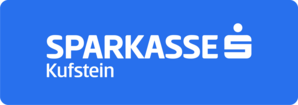
Apply
now
now
Business Models: Analysis & Application
level of course unit
BachelorLearning outcomes of course unit
The students
• Understand and apply the methods of business model innovation (metamodel, process model, techniques and results).
• Are able to analyze a (digital) business model and develop/implement their own business models.
• Are able to reflect on the results independently.
• Understand and apply the methods of business model innovation (metamodel, process model, techniques and results).
• Are able to analyze a (digital) business model and develop/implement their own business models.
• Are able to reflect on the results independently.
prerequisites and co-requisites
None
course contents
Part A: Fundamentals of business modeling:
• Characteristics, elements and levels of business models
• Working with current business model concepts: Business Model Canvas
• Value Proposition Design
• Business Model Navigator, Business Model Kit, Lean Startup, Design Thinking, Sprint, "AndersArtigkeit" etc.
Part B: Analysis and development of business models:
• Development and evaluation of business ideas (trend research, future industries, etc.)
• Procedure for business model innovation
• Special features of business model development: e.g. digital business modeling, high-tech start-ups, web-based business models, service-based business models;
Part C: Examples of innovative business models
Examples from the business-to-consumer sector; examples from the business-to-business sector. Examples for small and medium-sized enterprises
• Characteristics, elements and levels of business models
• Working with current business model concepts: Business Model Canvas
• Value Proposition Design
• Business Model Navigator, Business Model Kit, Lean Startup, Design Thinking, Sprint, "AndersArtigkeit" etc.
Part B: Analysis and development of business models:
• Development and evaluation of business ideas (trend research, future industries, etc.)
• Procedure for business model innovation
• Special features of business model development: e.g. digital business modeling, high-tech start-ups, web-based business models, service-based business models;
Part C: Examples of innovative business models
Examples from the business-to-consumer sector; examples from the business-to-business sector. Examples for small and medium-sized enterprises
recommended or required reading
• Friedrichsen, M. (2024). Digitale Ökonomie und Transformation: Disruptive Geschäftsmodelle und neue Arbeitswelten im digitalen Business. Wiesbaden: Springer Verlag.
• Hofmeister, C. (2022). Digital Business Modelling: Digitale Geschäftsmodelle verstehen, designen, bewerten. München: Carl Hanser Verlag.
• Kollmann, T. (2022). Digital Business: Grundlagen von Geschäftsmodellen und –prozessen in der Digitalen Wirtschaft. Wiesbaden: Springer Verlag.
• Ronteau, S., Muzellec, L., Saxena, D., & Trabucchi, D. (2023). Digital business models: The new value creation and capture mechanism of the 21st century. Berlin/Boston: Walter de Gruyter.
• Hofmeister, C. (2022). Digital Business Modelling: Digitale Geschäftsmodelle verstehen, designen, bewerten. München: Carl Hanser Verlag.
• Kollmann, T. (2022). Digital Business: Grundlagen von Geschäftsmodellen und –prozessen in der Digitalen Wirtschaft. Wiesbaden: Springer Verlag.
• Ronteau, S., Muzellec, L., Saxena, D., & Trabucchi, D. (2023). Digital business models: The new value creation and capture mechanism of the 21st century. Berlin/Boston: Walter de Gruyter.
assessment methods and criteria
• Final presentation and
• Term paper
• Term paper
language of instruction
Germannumber of ECTS credits allocated
4eLearning quota in percent
20course-hours-per-week (chw)
3planned learning activities and teaching methods
• 20 % of the event is covered by eLearning. A combination between online phases (inductive method for the independent acquisition of knowledge and the practice of tasks) and presence phases (deductive method, in which assistance is given in the learning process and knowledge is imparted via frontal lectures) is used.








